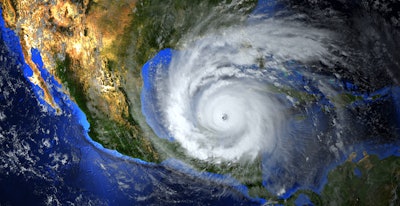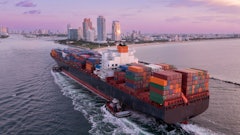
AccuWeather’s preliminary estimate of the total damage and economic loss from Hurricane Beryl sits at $28-32 billion.
“Beryl will go down in the history books as a record-shattering hurricane. It was the earliest Category 5 hurricane on record in the Atlantic basin, causing catastrophic damage in the Windward Islands. Beryl brought impacts to Jamaica and the Cayman Islands before slamming into the Yucatan Peninsula of Mexico with damaging wind and storm surge,” says AccuWeather chief meteorologist Jon Porter. “Very warm waters helped Beryl intensify in its final hours over the Gulf of Mexico before it made landfall in southeast Texas, amplifying the damage and impacts. Millions of people were left without power in scorching summer heat. Several people were tragically killed in flood waters and by falling trees. This was a devastating storm early on, in what is expected to be a very busy and impactful hurricane season for the United States.”
Key takeaways:
- AccuWeather indicated that Beryl would become a major hurricane ahead of any other source.
- The Houston area was particularly hit hard following the destructive thunderstorm windstorm in May.
- The storm also brought numerous tornadoes and flooding through eastern Texas, into Arkansas and southeastern Missouri, with the storm then moving toward the Midwest and then New England. At this point, flooding rain will become the main threat, as well as the risk for severe thunderstorms and isolated tornadoes east of the path of the storm.
- AccuWeather’s estimate largely accounts for damage to homes, businesses, infrastructure, facilities, roadways and vehicles as well as power outages, which results in food spoilage and interruption to medical care.
- AccuWeather estimates include damage to property, job and wage losses, crops, infrastructure damage, interruption of the supply chain, auxiliary business losses and flight delays or cancellations. The estimate also accounts for the costs of evacuations, relocations, emergency management, and the government expenses for cleanup operations as well as long-term effects on business logistics, transportation, tourism and more.

















![Pros To Know 2026 [color]](https://img.sdcexec.com/mindful/acbm/workspaces/default/uploads/2025/08/prostoknow-2026-color.mduFvhpgMk.png?ar=16%3A9&auto=format%2Ccompress&bg=fff&fill-color=fff&fit=fill&h=135&q=70&w=240)
